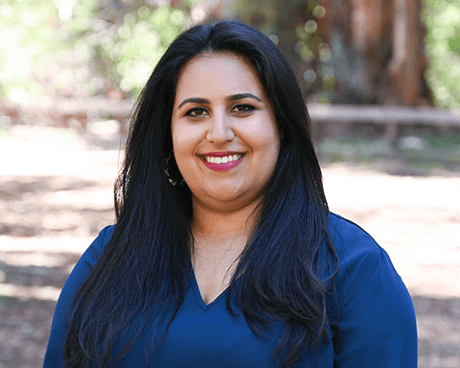
As the 2024 presidential election approaches, political talk is everywhere—on TV, social media, bumper stickers, at the dinner table, in classrooms, and in the background of everyday conversations. If you think your kids aren’t paying attention, think again.
They are listening, absorbing, and trying to make sense of it all. For kids and teens already juggling academic pressures, social dynamics, and extracurriculars, the constant barrage of political content can be overwhelming. For LGBTQIA+ youth, who are already at increased risk of poor mental health outcomes, this can be a particularly stressful time, as their identities become the topic of heated political discussions.
As parents and caregivers, it’s more important than ever to recognize this stress and start conversations that help children navigate what they’re hearing and seeing. Your guidance can make all the difference in how they process and cope with these added stressors.
1. Create a Safe Space for Conversation
Encourage open dialogue where children can share curiosity and concerns about what they’re hearing. Ask them what they know and how they feel about different topics. Address uncomfortable topics honestly in age-appropriate ways.
By fostering open dialogue, promoting respectful political discussions, and focusing on broader values of equality and kindness, parents can create a supportive environment that protects their children’s mental health during the election season.
Tips for Effective Communication
Listen for feelings. Sometimes when kids bring up a certain topic, they’re feeling distressing emotions. For example, after hearing about gun violence, children may experience fear, sadness, or feel that their sense of safety is threatened. Parents can support their children by helping them identify and name the emotions they are feeling.
Hold space for conversation and listen. Often when youth bring up a certain topic, adults can feel a knee-jerk response to offer reassurance. However, often youth are not seeking reassurance or problem-solving; they simply want to engage in conversation. Approach conversations with curiosity. Ask questions. Listen.
Find out what they already know. A simple question such as, “What have you heard about this topic?” can help you gauge your child’s level of understanding on the topic.

Keep the door open for more conversation. Remind your child that you’re here to talk whenever they need you. Keeping the lines of communication open is important. We want kids to feel comfortable coming to us, even when it’s about tough topics.
2. Promote Digital Citizenship, Media Literacy and Healthy Media Consumption
Election-related content is everywhere. The flood of information can become overwhelming, and can include misinformation, bias, and harmful rhetoric. Teaching your children to be responsible digital citizens and equipping them with media literacy skills will empower them to navigate the digital landscape safely and thoughtfully.

Are you interested in learning more about how to prepare you kids to navigate the digital world safely and responsibly? Check out our podcast for practical strategies that parents can use at home!
Steps for Encouraging Digital Citizenship
3. Keep Political Discussions Respectful
Children are sensitive to the tone of political discussions. Younger kids are developmentally more concrete in their thinking, seeing things as “good” or “bad.” When adults passionately disagree with other people or perspectives, children can interpret this as those people being “bad.” Try to model healthy discussions, even when you disagree with someone else’s perspective.
Ways to Maintain Respectful Dialogue

4. Focus on Values Over Partisan Politics
Rather than concentrating solely on political parties or specific candidates, emphasize broader values like equality, justice, and kindness.
Ways to Emphasize Values
Election seasons are times of heightened political activity and discussion. For children and teens, particularly LGBTQIA+ youth, this period can be stressful and even threatening to their sense of self and safety. By fostering open dialogue, promoting respectful political discussions, and focusing on broader values of equality and kindness, parents can create a supportive environment that protects their children’s mental health during the election season.
CHC is here to support your family. If you are interested in parent coaching to help you tackle these and other tricky topics of parenthood, please reach out to our Care Team: 650-688-3625 or careteam@chconline.org.


Meet The CHC Expert
Pardis Khosravi, PsyD , Dr. Pardis Khosravi, PsyD, is a clinical director and licensed psychologist specializing in psychological evaluations and evidence-based psychotherapy for children, adolescents, and transitional-aged youth. She integrates CBT and DBT in her therapeutic approach, with a focus on empowering clients through individualized assessments and actionable recommendations. Dr. Khosravi earned her PsyD from the PGSP-Stanford PsyD Consortium and completed her postdoctoral fellowship at the San Diego Center for Children. She is passionate about helping families build resilience and optimize academic, social, and emotional functioning. Dr. Khosravi is fluent in Farsi.





